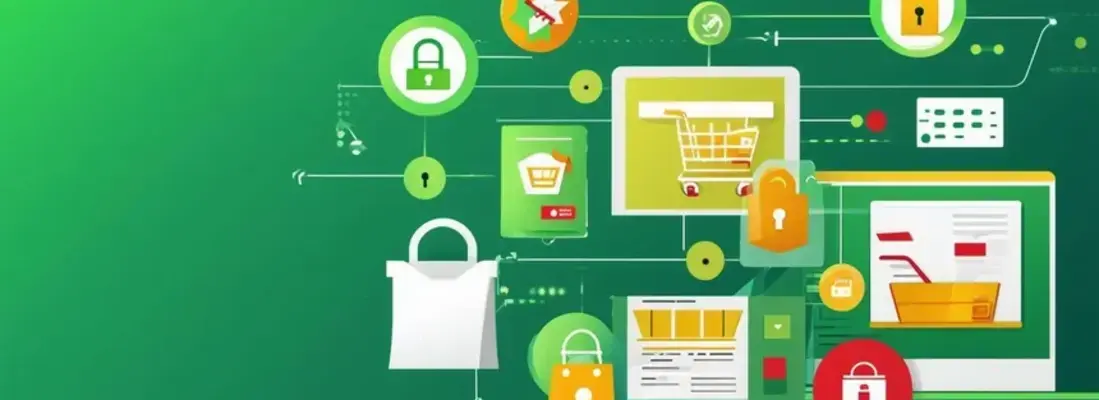Cybersecurity Essentials for Remote Alarm Businesses
Date: 17 January 2025

In 2025, cybersecurity challenges continue to evolve. Remote-ready alarm businesses are not immune. With operations spanning homes and businesses alike, security breaches could be costly.
Strong protection isn’t optional, no! Rather, it’s vital for maintaining trust. From encrypting data to using secure networks, taking precautions can prevent major issues.
Many companies tend to overlook smaller vulnerabilities. An unsecure device or poor password management, for instance, can lead to serious threats.
This guide covers essential steps every remote alarm business should consider for cybersecurity. You'll see that by staying proactive, you protect your operations and your clients' peace of mind.
The Role of Encryption in Securing Client Data
The backbone of cybersecurity often rests on encryption. It transforms sensitive data, like alarm codes or customer details, into unreadable formats unless decrypted by authorised users.
Without it, intercepted information is vulnerable to misuse. Advanced algorithms today ensure that even if attackers access encrypted data, deciphering it remains nearly impossible.
Even better, encryption isn’t just for databases. It protects live feeds and transmitted signals too. This reduces risks during remote operations while ensuring customers’ trust stays intact at every digital interaction point.
Automation: Managing Secure Remote Access for Alarm Monitoring Teams
Managing access for a distributed workforce comes with its unique challenges. Ensuring only authorised personnel interact with critical systems demands precision, especially in alarm businesses.
Secure remote access tools offer encrypted pathways that reduce exposure to unauthorised attempts. They also provide session monitoring, enabling supervisors to oversee activity logs and flag irregularities swiftly.
Beyond enhanced digital security, modern solutions like alarm business service software do more than safeguard operations. These platforms streamline efficiency by automating invoicing, creating job estimates securely online, managing workloads effectively, and keeping client records updated - all under one secure platform.
This integration not only improves security but supports smooth operations even as your teams operate remotely or across multiple sites without compromising safety protocols or performance reliability.
Common Cybersecurity Pitfalls Specific to Alarm Businesses
Alarm systems integrate hardware, software, and sensitive data streams. Even a single overlooked vulnerability can lead to severe consequences.
Weak passwords on connected devices often serve as entry points for attackers. Meanwhile, outdated firmware in control panels creates additional blind spots.
Unsecured APIs used between applications are another frequent issue that exposes communication channels. Data shared across platforms requires consistent monitoring and encryption layers.
Perhaps the future of cybersecurity holds even more challenges, but these pitfalls remain crucial focal areas today.
The Importance of Regular Software Updates and Patching
The systems used by your business to monitor alarms rely on complex software. However, outdated versions often become easy targets for cybercriminals.
Developers frequently release patches to fix vulnerabilities discovered post-launch. These updates close security gaps before attackers exploit them.
For alarm businesses managing remote operations, timely patching is vital. It ensures devices and management platforms remain resistant to threats while maintaining compatibility with evolving technologies in an ever-changing cybersecurity landscape.
Strengthening Device-Level Security Across the Business Network
Each device connected to your alarm systems represents a potential gateway for cyber threats. Without robust measures in place, one vulnerable component could jeopardise the entire network.
Among other strategies, you need to:
- Enable strong password protocols: Use unique passwords with regular updates to minimise brute-force attack risks.
- Deploy endpoint protection software: Tools that detect and isolate malware prevent system-wide infections.
- Activate device encryption features: Protect sensitive data stored locally on devices from unauthorized access.
- Disable unused features or ports: Reducing entry points makes unauthorised access less likely.
Addressing these individual elements collectively fortifies network security, creating an environment resistant to evolving threats and unauthorised breaches alike.
Multi-Factor Authentication as a Key Defence Mechanism
Access control becomes significantly stronger with multi-factor authentication (MFA). This method requires users to verify their identity through two or more steps, like a strong password and a mobile verification code.
Even if attackers compromise one credential, MFA provides an additional layer of protection. For alarm businesses managing sensitive data, it’s an essential tool for safeguarding systems against unauthorised intrusions.
Educating Your Team: Awareness Against Social Engineering Threats
The power of a well-informed team cannot be underestimated in combating cybersecurity risks. Alarm businesses often face social engineering tactics, where attackers manipulate employees into granting access.
By understanding phishing schemes, suspicious requests, and communication red flags, staff act as your first line of defence. Regular training ensures they recognise potential threats while confidently safeguarding both client data and company systems against evolving cyber-attack methods.
Conducting Routine Security Audits for Safer Operations
The best way to really tell if your cybersecurity framework holds strong is still through regular security audits. These comprehensive checks identify gaps, outdated practices, or vulnerabilities across your network and devices.
Audits often include penetration testing and compliance evaluations, offering a detailed look at risks before breaches occur. For remote alarm businesses managing sensitive systems, routine assessments act as preventative measures ensuring safer daily operations for clients and staff alike.
Partnering with Third-Party Experts for Advanced Cybersecurity
With a dedicated focus on threat detection, third-party cybersecurity specialists bring advanced tools and expertise to your business. They monitor networks in real-time, identify complex vulnerabilities, and provide tailored solutions.
For alarm businesses without in-house resources, these partnerships strengthen defences while staying ahead of emerging cyber threats. It’s a practical investment for long-term operational safety and client trust.
The bottom-line, a strong cybersecurity foundation safeguards alarm businesses and their sensitive operations. It ensures trust, success, and resilience against evolving threats.







